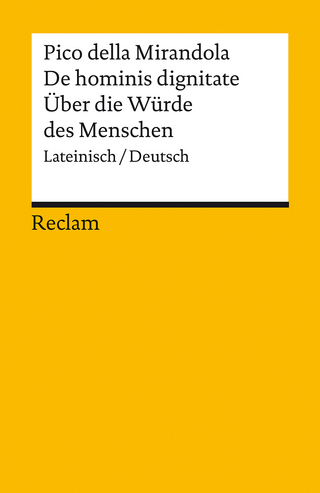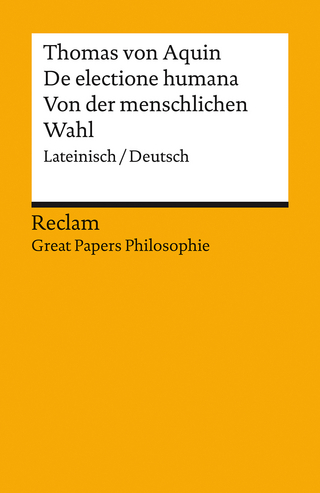
Robert Greystones on Certainty and Skepticism
Oxford University Press (Verlag)
978-0-19-726659-5 (ISBN)
Robert Greystones on Certainty and Skepticism: Selections from His Works is a continuation of the volume previously published by Auctores Britannici Medii Aevi, Robert Greystones on the Freedom of the Will: Selections from His Commentary on the Sentences (edited by Mark Henninger, with Robert Andrews and Jennifer Ottman, 2017). In the course of preparation of the first volume, startling information arose concerning the nature and extent of Greystones' skepticism. Following draft editions of a number of Greystones' Sentences commentary questions, the most relevant five questions were selected for editing and translation.
Greystones is in the tradition of Nicholas of Autrecourt, William Crathorn, Monachus Niger (the Black Monk), Nicholas Aston, and John Went, but the earliest of these figures. Building upon the 69th proposition of the Condemnation of 1277, Greystones concludes that God's unlimited power must lead to a radical skepticism about human knowledge. We cannot be certain whether we are in this life or the afterlife, in a body or not. We cannot be certain about the existence of any external object. We have no certain knowledge of cause and effect, the existence of substances, or of any contingent event. Like Descartes, Greystones held that we can be certain about our own existence (ego sum). But preempting Descartes' appeal to a beneficent, non-deceptive God, Greystones says: God does not deceive. But you deceive yourself if you insist on believing that something exists when you know that it might not! You know that God can intervene at any instant, and thus that you can never completely trust your senses. Greystones' skepticism is strikingly significant in light of the later historical development of philosophy.
Recent researchers on medieval skepticism such as Henrik Lagerlund, Dominik Perler, and Jos é Luis Bermúdez show no awareness of Greystones. Indeed, Bermúdez claims that "the resources were not available in the thirteenth and fourteenth centuries to entertain those ... skeptical worries that were identified as distinctive of Cartesian skepticism." This edition of Greystones should prompt not just a footnote to, but a re-writing of, the history of philosophy.
Robert Andrews, born 1955, was educated in Illinois, New Mexico, New York, and Copenhagen. Associate Professor with tenure at The Franciscan Institute of St. Bonaventure University. Visiting Assistant Professor at The University of North Carolina - Asheville. Currently Researcher in the Greystones Manuscript Project, Georgetown University, and associate of the Centre for Medieval Studies, Stockholm University. Jennifer Ottman received her PhD in History from Yale University. She has collaborated on the Richard Rufus of Cornwall Critical Edition since 1999 and has been the associate editor since 2011. Jennifer Ottman is also a collaborator on the Greystones Manuscript Project since 2011. Mark Henninger received his PhD in philosophy from the University of California in Los Angeles. He has taught and engaged in research in a number of universities: Loyola University of Chicago, University of Detroit Mercy, Arrupe College and the University of Zimbabwe, the Gregorian University in Rome, and Georgetown University, Washington DC.
| Erscheinungsdatum | 04.06.2020 |
|---|---|
| Reihe/Serie | Auctores Britannici Medii Aevi |
| Verlagsort | Oxford |
| Sprache | englisch |
| Maße | 161 x 230 mm |
| Gewicht | 988 g |
| Themenwelt | Geisteswissenschaften ► Philosophie ► Philosophie des Mittelalters |
| Geisteswissenschaften ► Religion / Theologie | |
| ISBN-10 | 0-19-726659-2 / 0197266592 |
| ISBN-13 | 978-0-19-726659-5 / 9780197266595 |
| Zustand | Neuware |
| Haben Sie eine Frage zum Produkt? |
aus dem Bereich


